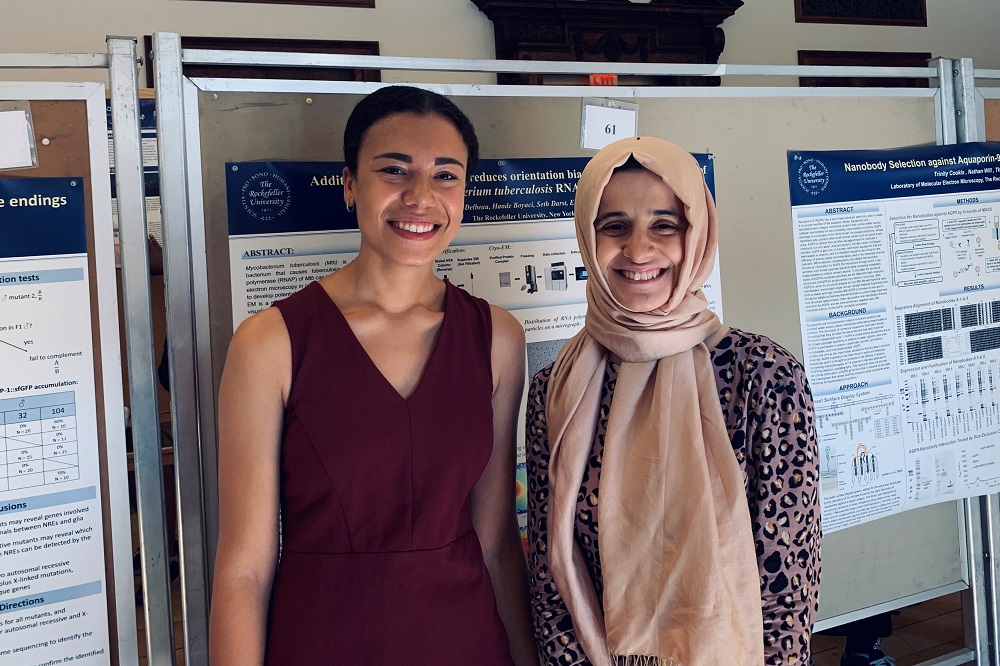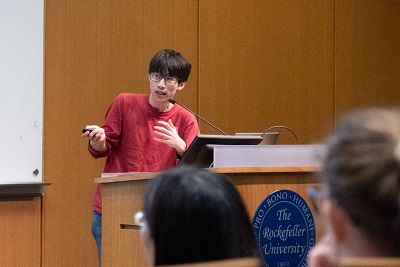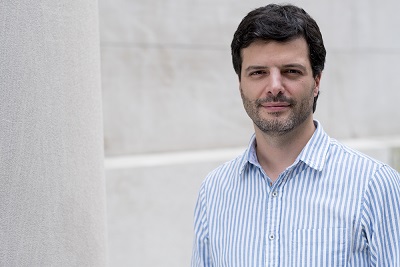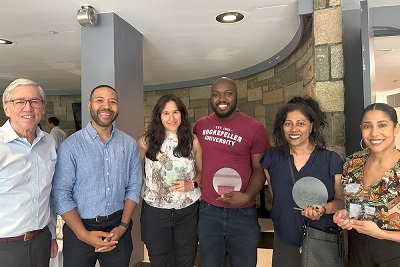A summer program that gives undergraduates the tools to ask big scientific questions

SURF student Madeleine Delbeau with her mentor Hande Boyaci.
There’s no shortage of interesting research questions at Rockefeller: how exercise alters cancer risk, how fruit flies choose a mate, how vocal learning evolved, and the list goes on. But rather than being asked by seasoned scientists, these are the projects of the university’s summer undergraduate research fellows. With help from their mentors, students dive head first into complex scientific conundrums.
This past summer, Madeleine Delbeau, then a junior at the University of Richmond, was one of these students. Working with her mentor Hande Boyaci, a postdoctoral fellow in the lab of Seth A. Darst, Delbeau had the opportunity to help the lab improve upon their methods for looking at molecules involved in tuberculosis, a contagious airborne disease and a swiftly growing global health threat.
The lab’s work relies heavily on cryo-electron microscopy, a state-of-the-art imaging technique that makes it possible to inspect molecules at atomic resolution. The method requires samples to be flash frozen, which can sometimes create distortions that impair scientists’ ability to get perfectly clear pictures. By using a specially formulated detergent, Delbeau honed a new method to mitigate some of this distortion, ensuring high-resolution images of a key enzyme involved in the life cycle of the bacterium that causes tuberculosis.
Though Delbeau had already spent a considerable amount of time in an undergraduate lab at her liberal arts college, this summer at Rockefeller was the first time she worked in a large lab with graduate students and postdocs. “There were a lot of people to learn from and my mentors were absolutely excellent,” she says.
Which is the very kind of learning experience the Summer Undergraduate Research Fellowship program, known as SURF is meant to provide, according to Senior Associate Dean Emily Harms, who has been running the program since 2004. “It’s all about showing students how much they can achieve with strong mentorship and support,” she says. “These students are all bright and ready to handle an independent research project. Through the course of the summer, we give students a taste of what it would be like to be a graduate student in the sciences, and they often end up accomplishing more in 10 weeks than they ever thought possible.”
Outside of their individual labs, SURF students have additional opportunities for skills development: There are sessions on how to present scientific research, a journal club where undergraduates are paired with graduate students to critique scientific studies, and a weekly lecture series covering a broad range of topics. At the end of each summer, SURF students also present their research results at a poster session open to the entire campus.
Over the course of the summer, another of Delbeau’s mentors, Research Associate Professor Elizabeth Campbell, would encourage her to think about scientific questions related to her project, to the field of structural biology, and to tuberculosis research at large. The two would also discuss the importance of the lab’s work for patients in the developing world, where the disease remains a scourge. “Beyond the scientific mentorship, I also found Liz to be an amazing role model,” says Delbeau.
“The only problem was leaving at the end of the summer. I wanted to stay and work on more projects.”
Applications for the SURF program for the summer of 2020 are now open. College sophomores and juniors are encouraged to apply.


